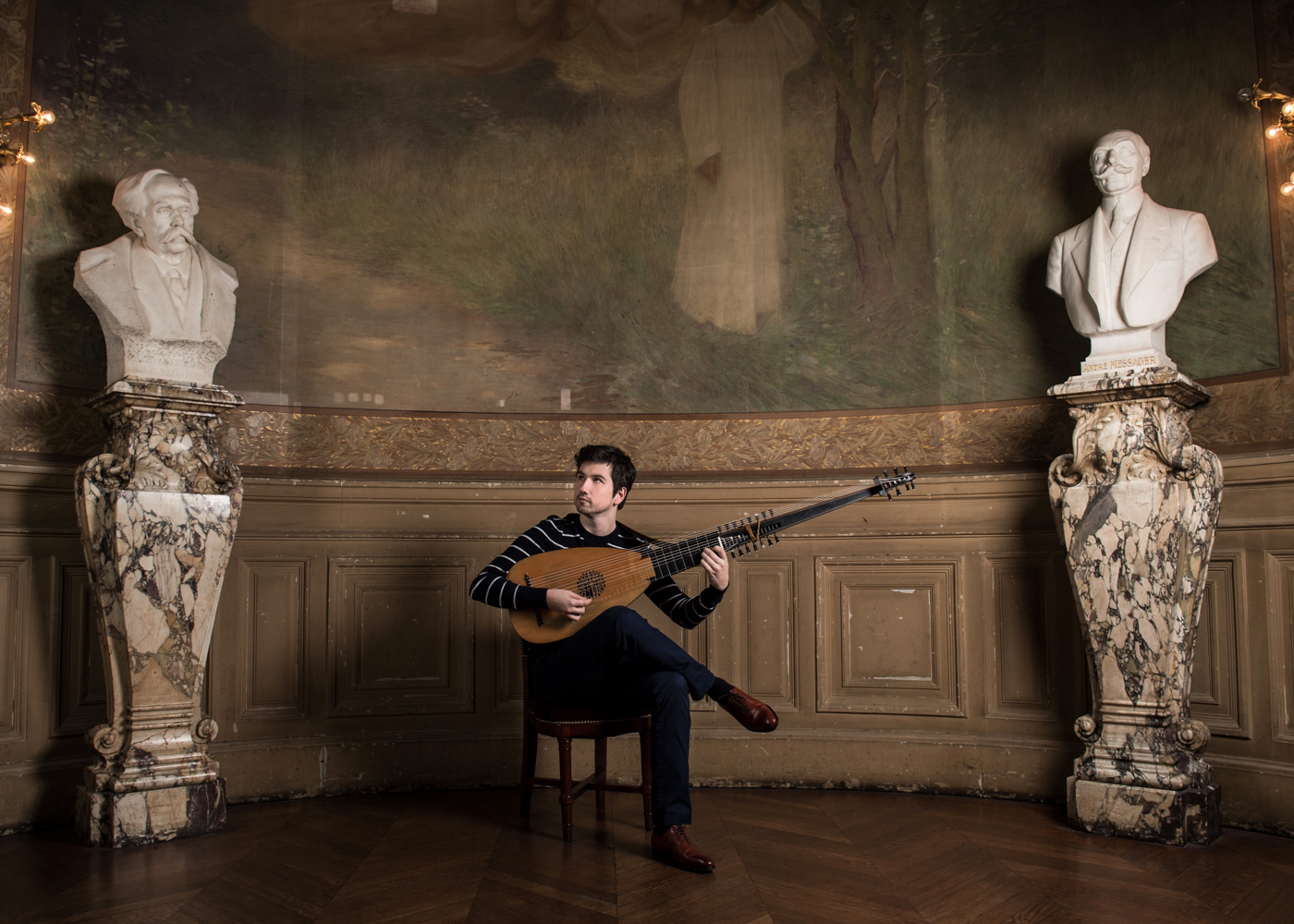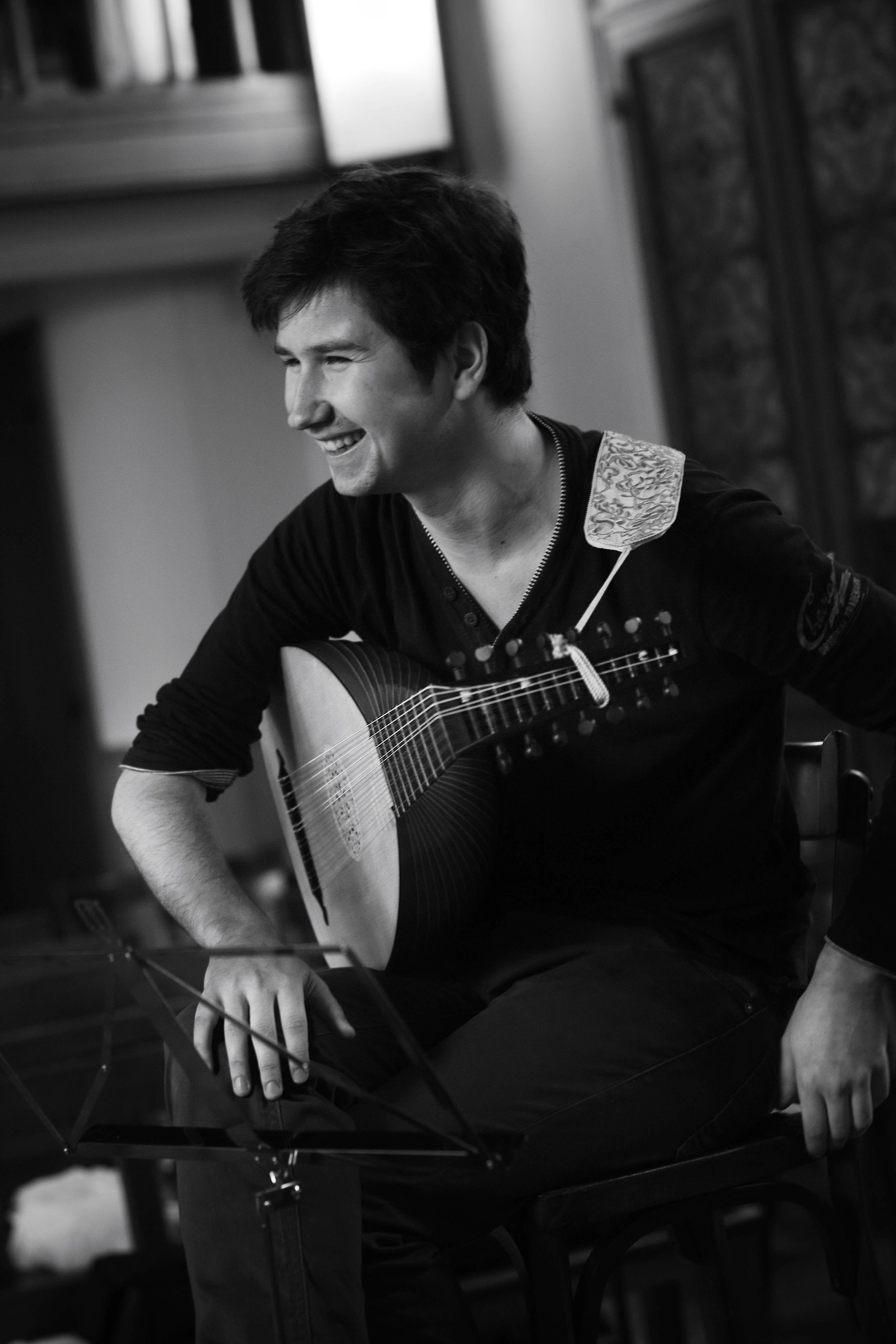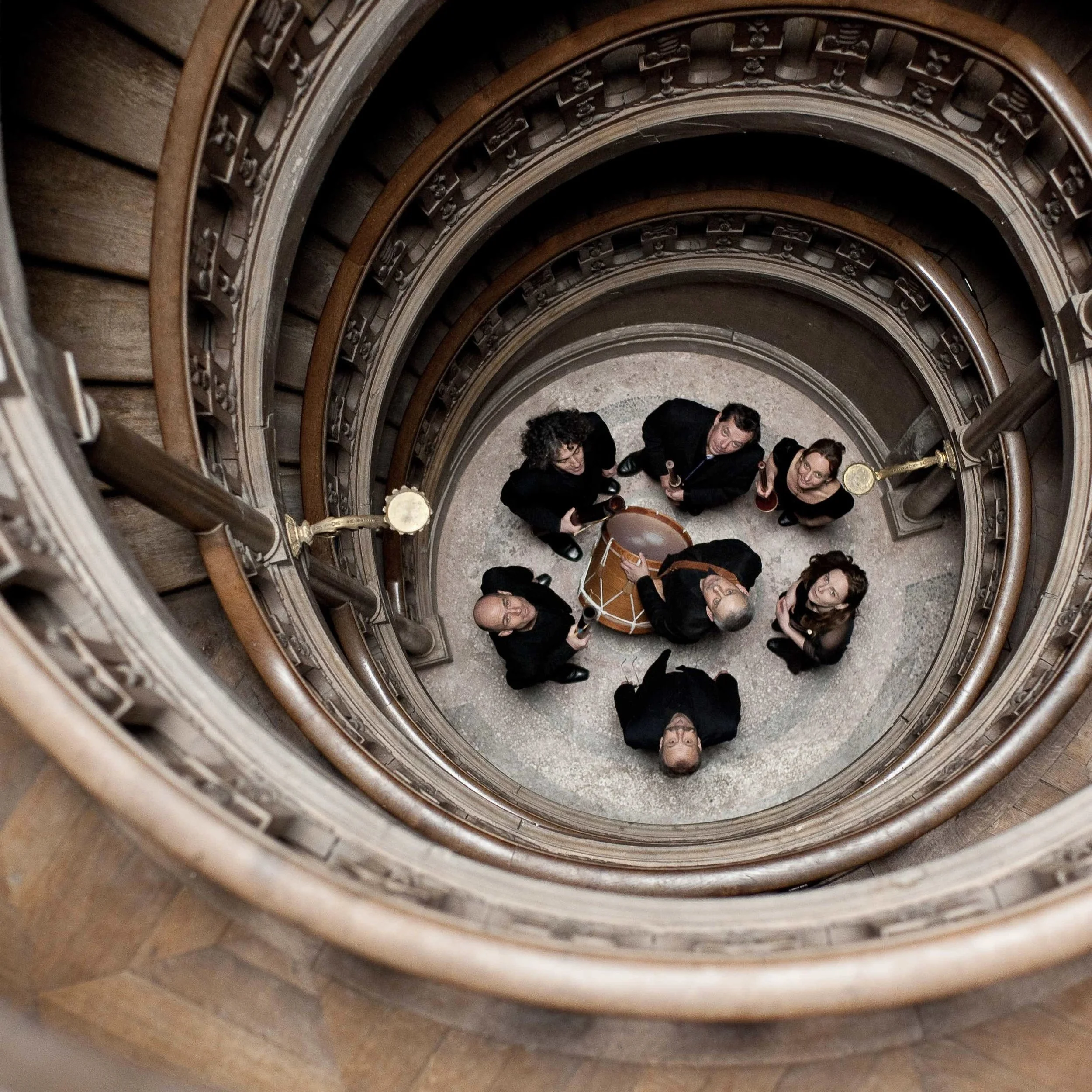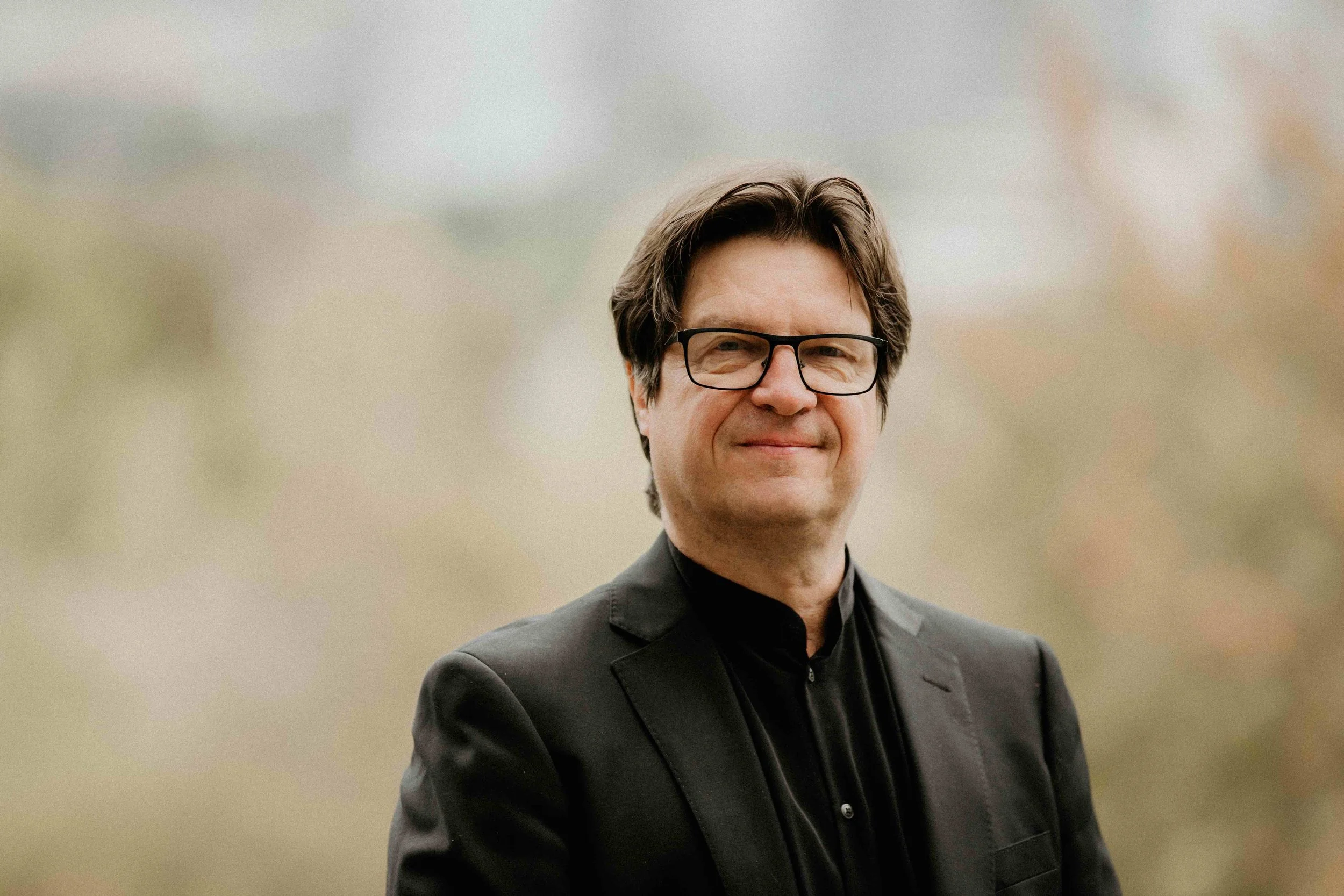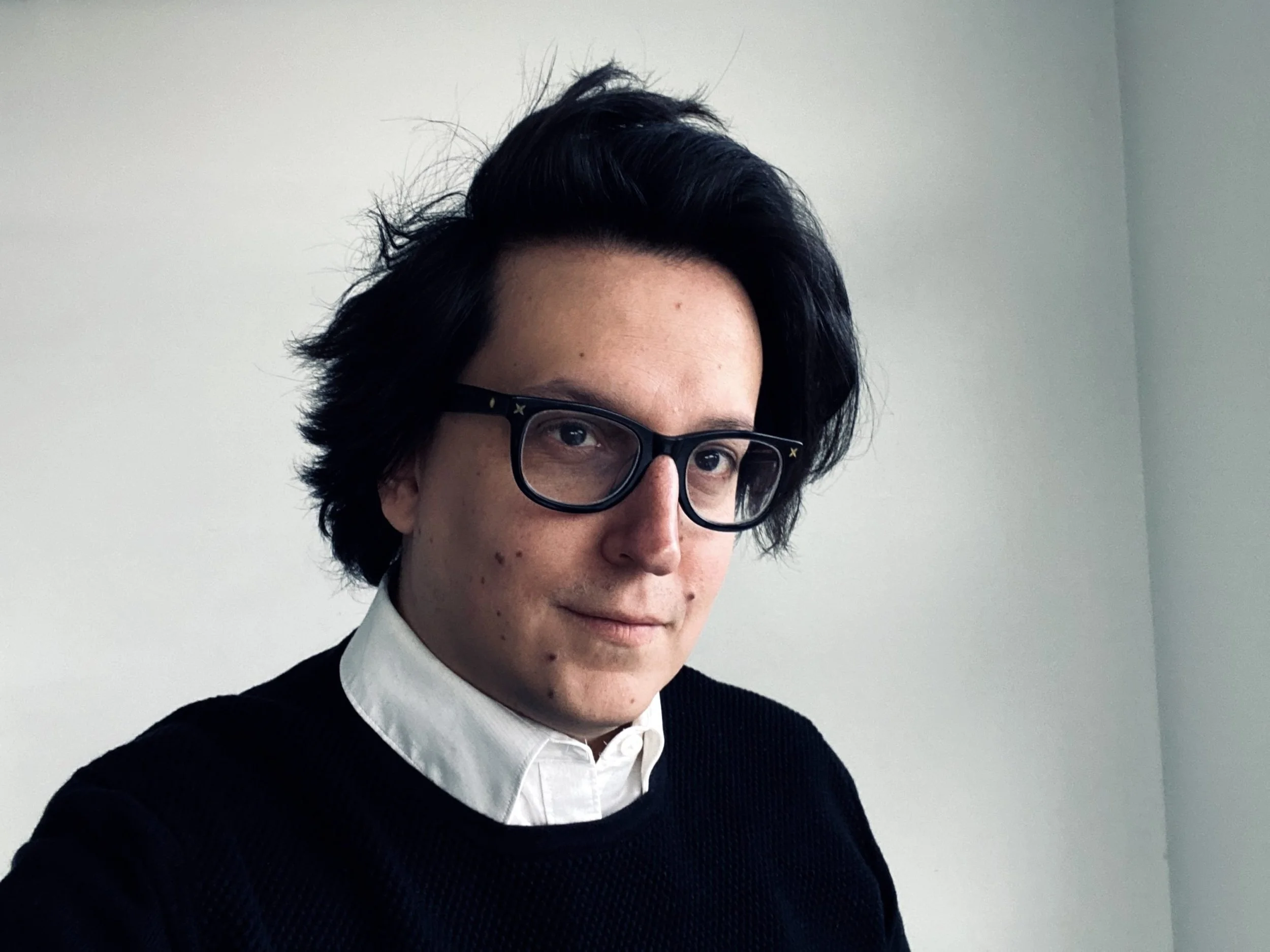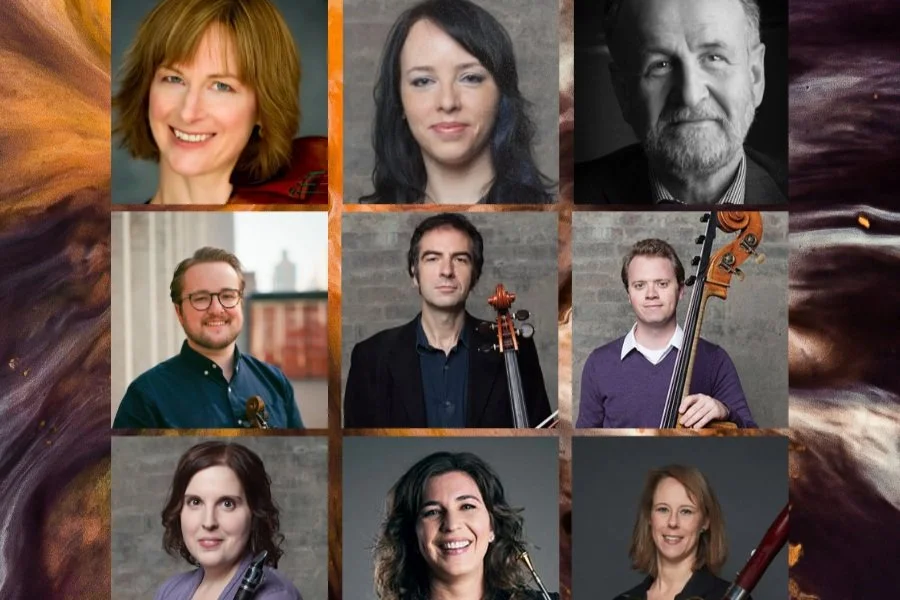Thomas Dunford's lute is his passport to good times, in bars, parks, and on the concert stage
Solo show at Early Music Vancouver features nine short works by his beloved John Dowland, and Bach’s magisterial Suite in G Major
Thomas Dunford is game to play his lute anywhere, anytime.
Early Music Vancouver presents The Art of the Lute With Thomas Dunford at Christ Church Cathedral on Friday, November 25
A MAN WALKS INTO a bar… and pulls out his lute.
You read that right: lute. Not that other word with the same pronunciation but a different spelling. But if the man in question is Thomas Dunford, he’s likely to get an even better reception than he would by splashing money around. For the 34-year-old musician, who plays a Vancouver Early Music recital next Friday, the lute is more than just the instrument that he’s been in love with ever since he was nine years old, and more than just his connection to a beloved and bygone era.
It’s his passport to good times.
“When I’m at parties or bars I always like to play and sing,” Dunford reports in a phone conversation from his Bay Area hotel, where he’s resting up before a concert appearance with countertenor Iestyn Davies. “Making music is an extremely good way of meeting people, whether it’s on the street in San Francisco or in a bar in Japan. I’ve met lots of nice people through music.”
Just the day before, in fact, the Paris-based lutenist had only been on the ground for a couple of hours before packing up his instrument and setting out on a sight-seeing excursion.
“I often come to San Francisco, and when I come I always go to [tourist mecca] Pier 39, rent a bike, and go to Golden Gate Bridge or whatever,” he says. “I like to explore the city while I’m here. But my parents were here a month ago, and they told me about this hippie neighbourhood where all the musicians I like from the ’70s used to live. What’s it called? Haight Street or something. So I went there first thing when I landed. I left my things in the hotel and went to see Jimi Hendrix’s house and Janis Joplin’s house, and there was a guitar player, so we started playing in the streets, lute and guitar.
“‘Love, love, love…’” he croons softly. “We did some John Lennon stuff.”
Further adventures transpired when the two new friends trekked to Golden Gate Park, still a countercultural nexus 55 years after the Summer of Love. “There were lots of people drumming, so I took the lute and started jamming with the drums, and everybody was dancing,” Dunford says. “It really felt like Woodstock! They were all chanting Hindu mantras, and it was a really nice moment with a bunch of strangers, all dancing around.
“I didn’t expect that!” he adds. “I thought it was probably this kind of hippie neighbourhood that people explored like a museum, but it was good! There were some potheads in the street; it really felt like 1969, and it was hilarious.”
Dunford has a not-so-secret interest in popular music, whether it’s contemporary electronica or classic rock. Ever since his 2013 debut, which was otherwise devoted to the music of his beloved John Dowland, he’s been adding “ghost tracks” to his CDs; let the disc play past the end of the official program, and you might be treated to a Nine Inch Nails cover or a self-penned follow up to “All You Need Is Love”.
“At the end of Vivaldi, there’s a song we wrote with my friend Lea Desandre called ‘We Are the Ocean’,” he explains. “So you leave the CD on, and then two minutes later you get to hear this fun song we wrote in a bar in Berlin about the fact that while each one of us is just a drop in the ocean, together we are the ocean. It’s a thing about global consciousness, I guess.”
Next year, the lutenist will take his pop inclinations a step further with the release of a collection of his original songs, and he’ll also get to further his Beatles obsession in an especially gratifying way. Paul McCartney’s recording engineer of choice, Sam Okell, will mix the record, presumably at his home base—which happens to be Abbey Road Studios.
If there’s a pop component to Dunford’s Early Music Vancouver recital, which he will play without accompaniment and without singing, it will be reserved for the encore—and an encore is almost guaranteed, given that he’s closing the program with Johann Sebastian Bach’s magisterial Suite in G Major. Also on the bill are nine short works by Dowland, a pair of toccatas by Girolamo Kapsberger, and Juan Ambrosio Dalza’s “Calata alla Spagnola”. It’s a survey of 16th- to 18th-century excellence, made fully contemporary by Dunford’s vivacious presence and extraordinary technique.
If there’s a thesis beyond that, Dunford says, it’s only that these are works that he’s known and loved almost since infancy. (His parents, it’s not surprising to learn, are both viola da gamba players, and met in a master class led by the influential Spanish gambist Jordi Savall.)
“Dowland I grew up with, playing the lute, and Kapsberger too—a little bit later, maybe,” he says. “But they both wrote, in their different styles, some of the best lute pieces that ever existed. So it’s basically a journey through amazing music. And I’m sure Bach must have been a very good lute player, because he was good at everything that had to do with music. Some of his pieces have had a huge impact on me, like the ‘Chaconne’, along with John Dowland’s ‘Lachrimae’ and ‘Frog Galliard’. Those are beautiful pieces.”
Dunford likes to get closer to music’s intrinsic beauty by researching the lives, as well as the scores, of the masters.
“If I’m going to play Dowland, Diana Poulton wrote a really amazing book on Dowland and all his sources and his life and where he comes from,” he says, referencing the British lute virtuoso and musicologist’s John Dowland: His Life and Works. “It’s nice to get to know the person you’re playing, because his personality comes through so much in the emotions that he’s writing in the music. With Bach, I’ve collected many stories in an attempt to understand his character, and so it feels natural, understanding his music. The music speaks for itself, but once you know the man a little better through stories, it also makes more and more sense, I guess.”
On some level, however, Dunford is still the same ukulele-strumming nine-year-old who took one lute lesson and discovered his purpose in life. “Sometimes you like playing video games, and sometimes you’re with the instrument and you spend the whole day playing,” he says. “Music was like a video game for me, as a kid: you play Dowland more and more, and it always challenges you, but it’s always fun.”
For Dunford, it still is—whether he’s playing in bars, parks, or on the concert stage.



